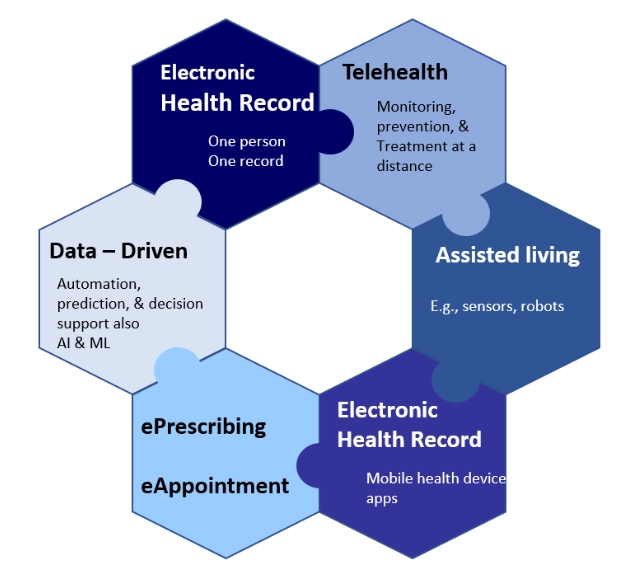Digital health technologies are rapidly transforming the healthcare industry, offering innovative solutions to improve patient care and streamline processes. From telemedicine to wearable devices, there are countless advancements shaping the future of healthcare. Let’s explore some of the latest innovations in this ever-evolving field.
Telemedicine: Connecting Patients and Providers
Telemedicine is gaining popularity as a convenient way for patients to access healthcare services remotely. Through video calls, patients can consult with healthcare providers, receive prescriptions, and even monitor their health from the comfort of their own homes. This technology is particularly beneficial for individuals in remote areas or those with limited mobility.
Wearable Devices: Monitoring Health in Real Time
Wearable devices, such as smartwatches and fitness trackers, have revolutionized how individuals track their health and fitness goals. These devices can monitor heart rate, sleep patterns, activity levels, and even detect abnormalities in vital signs. By providing real-time data, wearable devices empower users to take control of their health and make informed decisions.
Artificial Intelligence: Enhancing Diagnostics and Treatment
Artificial intelligence (AI) is playing a crucial role in improving diagnostics and treatment plans for patients. AI algorithms can analyze vast amounts of medical data to identify patterns and trends that human doctors may overlook. This technology helps healthcare providers make more accurate diagnoses, predict disease progression, and personalize treatment plans for each patient.
Virtual Reality: Immersive Healthcare Experiences
Virtual reality (VR) technology is being used to create immersive experiences for healthcare providers and patients. Medical students can practice surgeries in a virtual environment, while patients can undergo virtual therapy sessions to manage pain and anxiety. VR technology is also used for rehabilitation programs and mental health interventions.
Blockchain: Securing Data and Streamlining Processes
Blockchain technology is revolutionizing data security and transparency in healthcare. By creating decentralized, encrypted ledgers, blockchain ensures that medical records are secure and tamper-proof. This technology also streamlines billing processes and improves interoperability between different healthcare providers.
In conclusion, digital health technologies are reshaping the healthcare landscape and offering new ways to deliver quality care. From telemedicine to wearable devices, AI to VR, these innovations are enhancing patient outcomes, increasing efficiency, and transforming the way healthcare is delivered. As technology continues to advance, the possibilities for improving healthcare are endless.

